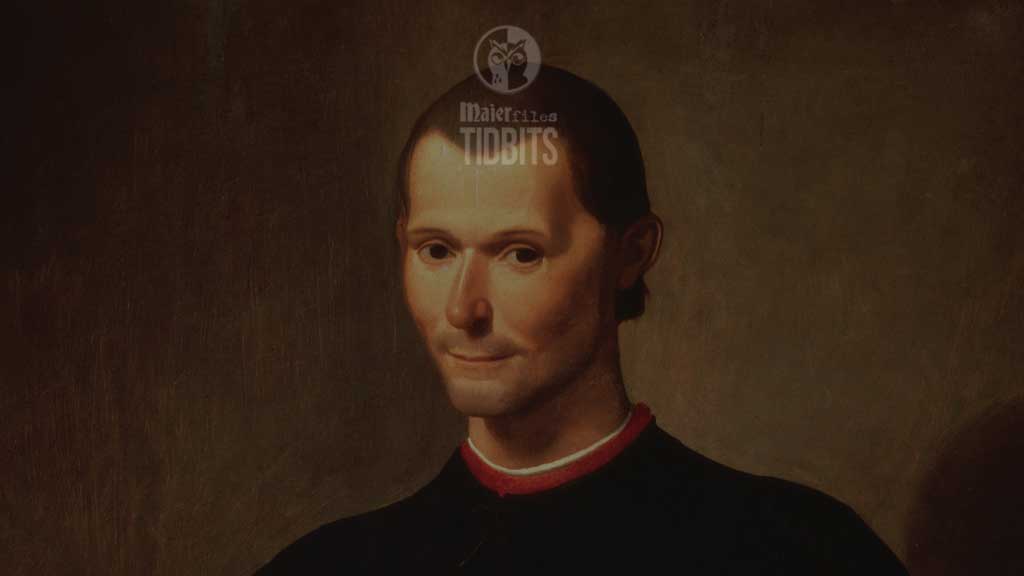“When one sees a great error made by an enemy, one ought to believe that there is deception underneath.” Then, we should be on the lookout for intentional “great errors” as we read Machiavelli’s works too.
Machiavelli’s works are obviously packed with quotations, including allusions and referrals to ancient historians, poets, and philosophers. But yet what about the Bible? Unexpectedly, even though there are lots of allusions to biblical tales, in the whole of the Prince and the Discourses, you can find just one, single quote from the Bible. Moreover, this quote occurs in a distinctly essential chapter, book 1, chapter 26: the single chapter in the total of the Discourses—a work dedicated to the analysis and restoration of republican government—that is explicitly focused on tyranny, to the greatest enemy of republican liberty.
It is honest to state, then, that at least for the mindful readers, a twofold spotlight, as it were, falls on this short quote. Machiavelli utilizes it in the course of explaining that if a man should rise from private life to be the sole ruler of a city or province, especially an unruly one, then the only sure means for holding onto it is to make everything new.
What this simple-sounding phrase means is something extraordinarily tyrannical:
to make in cities new governments with new names, new authorities, new men; to make the rich poor, the poor rich, as did David when he became king—“who filled the hungry with good things and sent the rich away empty”; besides this to build new cities, to take down those built, to exchange the inhabitants from one place to another.
Machiavelli himself goes on to remark:
These modes are very cruel, and enemies to every way of life, not only Christian but human; and any man whatever should flee them and wish to live in private rather than as king with so much ruin to men.
Machiavelli, Discourses, 61–62 (1.26)
Machiavelli makes a peculiar blunder here. The quote he recites is not relating to David whatsoever. It is describing—God! An calculated “great error”? Perhaps it would appear to be covertly communicating a significant and dangerous message: that the Biblical God is a great tyrant or, more in general, that the Christian religion is probably the real cause of the loss of the ancient republican liberty that he, Machiavelli, is trying in this book to rebuild or to revive. In the ‘Prince’, as well, Machiavelli addresses the loss of liberty in the postclassical world. In one of his best known teachings, he emphasizes that the modern world has become weak and enslaved essentially due to the dependence on mercenary and auxiliary troops—on outside forces. This military problem—and not Christianity—would appear to be the main reason for losing freedom. To remain strong and free, one must always rely on “one’s own arms.” To prove and illustrate this core principle of self-reliance, Machiavelli gives a number of examples, culminating in the famous biblical story of David and Goliath.
“Saul, to give David spirit, armed him with his own arms—which David, as soon as he had them on, refused, saying that with them he could not give a good account of himself, and so he would rather meet the enemy with his sling and his knife.”
As most everyone knows, David did not take a knife or sword with him, but only his sling. The whole point of the story—indeed, the whole point of the story—is that we should not rely on ourselves or our own arms: we must put our whole faith and trust in the Lord, who alone can deliver us from our enemies as from all evil.
He presented the David and Goliath tale to be able to claim, on the outside, that his new teaching is conforming to the Bible. But he changes— he reverses—the crucial fine detail of the knife to be able covertly to declare the quite contrary statement: that his central new teaching of military self-reliance—and in the end of human self-reliance—is diametrically in opposition to the central teaching of the Bible. For the Christian teaching of passivity and trust in the Lord, in his view, has disarmed the world, making it weak and ripe for tyranny. Machiavelli would contribute to the restoration of ancient republican liberty by putting a sword back in human hands. … Nothing is ever what it seems.




